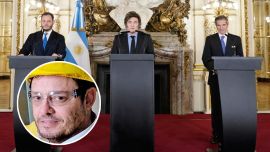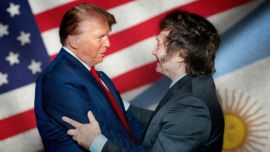If Luftwaffe chief Reichsmarschall Hermann Göring said: “When I hear the word ‘culture,’ I reach for my revolver” (which did not prevent him from becoming by far the biggest Nazi art thief, with Rembrandts, Rubens and Goyas lining the walls of his Carinhall mansion), he would be a happy man today – the coronavirus pandemic is destroying culture more silently but effectively than his London Blitz ever did. The West End theatres blasted by the Heinkels could always be restored after the war (and mostly were) but what kind of afterlife awaits theatres and indeed all forms of mass entertainment today?
Most lists of afflicted sectors are headed by aviation, tourism, hotels, cruisers, etc. but theatres, cinemas, museums, galleries and cultural centres of all kinds are shut down indefinitely with their year over before it has even begun in this quarantine launched on the last day of summer and hundreds of thousands of jobs on the line. Nor is it a question of riding out the storm because it is not so much a question of when these cultural shrines return as how. If the “back to the future” facing them can be called a return at all – outlandish seating arrangements to respect social distance with plastic screens separating us from family and friends, opera tenors warbling through face-masks, staggered queues at box offices, etc. Even a basic like the popcorn at the cinema could become fiendishly complex. The cure might not be worse than the disease but competes.
Meanwhile, during the long wait modern technology rushes in to fill the vacuum with its typical velocity – not only streaming and Netflix growing exponentially to meet quarantine needs but also all cultural media, including traditional theatre, available online. And when the long wait does end, cinema at least can offer nothing but reruns until around mid-2021 because the new films have yet to be made. Perhaps drive-in movies (which peaked over half a century ago) might be the most adaptable to post-pandemic times. Buenos Aires’ famous International Book Fair (indefinitely postponed) would have normally been winding up last Tuesday but its absence seems to have gone almost unnoticed (speaking of which, today at 1.30pm, TV Pública will air a special broadcast celebrating the fair).
The challenge here falls squarely into the laps of national, provincial and municipal cultural authorities – the artistic world is only responsible for the creativity and the entertainment industry is helpless to find a revenue model amid lockdown. But the traditional top-down linear approach of these authorities has been rendered obsolete by Covid-19 – lateral thinking with crossover to social networks, virtual platforms and videoconferences in a new grid is needed.
So what does the national Culture Ministry, the subject of today’s column, bring to the table to meet this challenge?
Culture Minister Tristán Bauer, 60, shares ethnicity with Hermann Göring but has little else in common with the Reichsmarschall. A film-maker of the social realism school, he ran public media during the Cristina Fernández de Kirchner presidency (2008-2013). There his main contributions were in public television with such programmes Encuentro and Paka Paka for children – the former (which he did not invent but did much to develop) was widely respected as a genuine attempt towards cultural enrichment across a broad spectrum but the latter (which he did introduce in the bicentennial year of 2010) was more controversial, slammed by the opposition as a crude propaganda brainwashing of young minds in Kirchnerite ideology. And indeed, few ministers are more clearly identified than Bauer with the vice-presidential rather than the presidential wing of the ruling coalition – perhaps because cultural change has always been more central for the female Fernández than for the more pragmatic approach of the male Fernández.
Bauer began his ministry by announcing a “culture of diversity,” vowing to consign the “meritocracy and individualism” of the Mauricio Macri years to the past, but advanced little enough along those lines in the summer months which saw quarantine announced on their penultimate day. That quarantine presented him with what might be called a captive audience and on the very first day he announced a “Puntos de Cultura” programme with a package of measures embracing cultural centres and festivals, libraries, arts, music, theatres and long-distance education to bring culture inside the home. But the budget for this package was not on a par with its ambition, totalling 286 million pesos with no component a millionaire in dollar as opposed to peso terms. Even if the value of such programmes cannot be measured in money alone, these figures can hardly compare with a global turnover of over US$20 billion enjoyed by Netflix, one of the few growth industries in Argentina this year.
In Argentine administrative history, culture was always an adjunct of education until the Peronist restoration of 1973 when the Héctor Cámpora presidency created a Culture and Education Ministry (in that order) under Jorge Taiana Senior, father of the current senator president and ex-minister – this lasted just seen weeks, surviving Cámpora by just four days. Apart from a brief revival of this ministry in 1981, culture was not even a governmental department until the return of democracy in 1983. Although not a ministry for another two decades, this department commanded a relatively high profile in such a culturally conscious country as Argentina with a number of secretaries who were variously articulate, controversial, voluble or eccentric – Marcos Aguinis, Julio Bárbaro, Jorge Asis (just three weeks), Mario “Pacho” O’Donnell, Dario Lopérfido, Torcuato Di Tella and José Nun.
In 2014, Cristina Fernández de Kirchner elevated the area to a ministry under the folk singer Teresa Parodi but it was already the tail end of her regime. Macri named Pablo Avelluto as his minister but had little compunction about demoting him when halving his ministries under International Monetary Fund pressure in 2018. Last December Alberto Fernández restored, under Bauer, a ministry which has existed for a total of 65 months or little over five in the 210 years of Argentine history.
In conclusion, the coronavirus pandemic has generally accelerated ongoing challenges to the creative industries rather than initiated them. The impact has been especially drastic for the basic business models of those branches of culture such as theatre, ballet, opera and concerts which have largely escaped the disruptive influence of the Internet because the physical presence of an audience is a central part of the event – a presence now denied by quarantine. But long before the pandemic the relentless concentration of creative industries under a global oligopoly has been advancing all this century. One day a vaccine against Covid-19 will be found, but immunity from those technological trends will be another matter.






















Comments